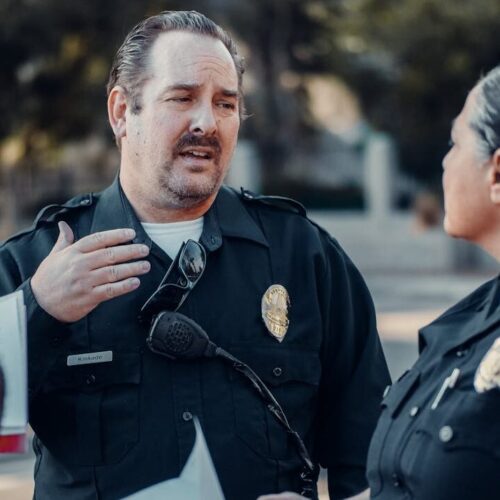
Gov. John Hickenlooper today announced a comprehensive review of Colorado’s juvenile justice system. The Governor was joined by Sen. Bob Gardner (R), Rep. Pete Lee (D), and Justice Brian Boatright of the Colorado Supreme Court in the effort to ensure that youth who find themselves in corrections at an early age can have a second chance to build successful futures. The task force furthers our efforts to keep youth out of the criminal justice system, bolster Two-Generation approaches, and get the best outcomes for Colorado youth.
“Kids don’t belong in prison. We know from the data that when children are incarcerated they usually become repeat offenders again and again,” said Governor John Hickenlooper. “This data-driven review will help us provide youths the best chance to successfully transition to a crime-free, productive adulthood.”
Partnering with the The Council of State Governments (CSG) Justice Center, the Improving Outcomes for Youth Statewide Task Force (IOYouth), includes lawmakers, judges, state and local juvenile justice leaders, and other stakeholders. Gov. Hickenlooper has designated Sen. Gardner and Rep. Lee as co-chairs.
“Strengthening public safety and improving the lives of our most vulnerable youth and their families are issues that all Coloradans can get behind,” said Rep. Lee.
Among the challenges faced by Colorado’s juvenile justice system are stubbornly high recidivism rates, which were between 49 and 55 percent over the three-year period from 2013 to 2015. And although juvenile arrest and incarceration rates have fallen, the Colorado Department of Youth Services spent $125 million in FY2017–2018—a $6.6 million increase from the year before.
“This initiative will help us take a closer look at the system with the goal of improving the use of supervision and services, increasing collaboration across state and local agencies, and strengthening our data collection and ability to hold agencies accountable for results,” said Sen. Gardner.”
The CSG Justice Center, a nonprofit, nonpartisan organization, will conduct the analysis of Colorado’s juvenile justice system, including data analysis as well as focus groups and interviews with local agency officials, prosecutors, defense attorneys, judges, law enforcement, probation staff, community-based providers, and youth and families impacted by the system across the state.
“Colorado is in a unique position to learn how to improve our system and to craft meaningful system improvements grounded in research and dedicated to making the state safer and its children more successful,” said Justice Boatright.
Over the next six months, the CSG Justice Center will present its key findings to the inter-branch task force, whose members will ultimately be responsible for coming to consensus on legislative changes for improving the system. These changes will be introduced in Colorado’s 2019 legislative session. IOYouth is a project of the National Reentry Resource Center supported by the U.S. Department of Justice.
New Hampshire Department of Corrections Commissioner Helen Hanks presents at the Medicaid and Corrections Policy Academy in-person meeting.
Read MoreThe sharp rise in school shootings over the past 25 years has led school officials across the U.S.…
Read MoreIdeally, leaders would have actionable data readily available to them when they need it most. However, many agencies…
Read More Meet the Medicaid and Corrections Policy Academy Mentor States
Meet the Medicaid and Corrections Policy Academy Mentor States
New Hampshire Department of Corrections Commissioner Helen Hanks presents at the Medicaid and Corrections Policy Academy in-person meeting.
Read More Taking the HEAT Out of Campus Crises: A Proactive Approach to College Safety
Taking the HEAT Out of Campus Crises: A Proactive Approach to College Safety
The sharp rise in school shootings over the past 25 years has led school officials across the U.S. to take a closer look at ways to keep students safe. For Chaffey College in Rancho Cucamonga, California, a tragic incident at a nearby university hit close to home and spurred campus leaders to revisit their own school’s threat assessments and crisis responses.
Read More New Smart Supervision Resident Analyst Program to Increase Supervision Agencies’ Data Analysis Capacity
New Smart Supervision Resident Analyst Program to Increase Supervision Agencies’ Data Analysis Capacity
Ideally, leaders would have actionable data readily available to them when they need it most. However, many agencies encounter significant challenges related to procuring accurate, consistent, and timely data, often grappling with outdated systems and inadequate tools.
Read More From 911 to 988: Salt Lake City’s Innovative Dispatch Diversion Program Gives More Crisis Options
From 911 to 988: Salt Lake City’s Innovative Dispatch Diversion Program Gives More Crisis Options
A three-digit crisis line, 988, launched two years ago to supplement—not necessarily replace—911. Calling 988 simplifies access to services when people are seeking help for themselves or loved ones with suicidal thoughts, behavioral health concerns, or substance use-related crises.
Read More Matching Care to Need: 5 Facts on How to Improve Behavioral Health Crisis Response
Matching Care to Need: 5 Facts on How to Improve Behavioral Health Crisis Response
It would hardly be controversial to expect an ambulance to arrive if someone called 911 for a physical health emergency. And yet, for years, the default responders for a behavioral health emergency have been law enforcement officers, not behavioral health professionals.
Read More










